Abstract
The aims of this study were to determine whether the development of acid induced duodenal ulcer pain was influenced by the symptomatic status of the patient and whether the administration of an antispasmodic could abolish pain. One hundred millilitres of 0.1 N hydrochloric acid was infused onto the ulcer craters or scars of 143 duodenal ulcer patients on 168 occasions. Symptomatic patients were randomised to receive 40 mg of hyoscine intravenously before acid infusion, or to a control group. Typical ulcer pain developed in seven of 55 (13%) instances for non-symptomatic patients, 24/57 (42%) of control symptomatic patients, and 20/56 (36%) of symptomatic patients given hyoscine. (Asymptomatic group v control symptomatic group, p less than 0.005; control symptomatic group v hyoscine group, NS - 95% confidence limits 12% in favour of the control and 24% in favour of the hyoscine group). The results suggest that acid infusion seldom reproduces ulcer pain in non-symptomatic duodenal ulcer patients and that the pathogenesis of acid induced duodenal ulcer pain probably involves a mechanism other than spasm, as pain was not prevented by an anticholinergic.
Full text
PDF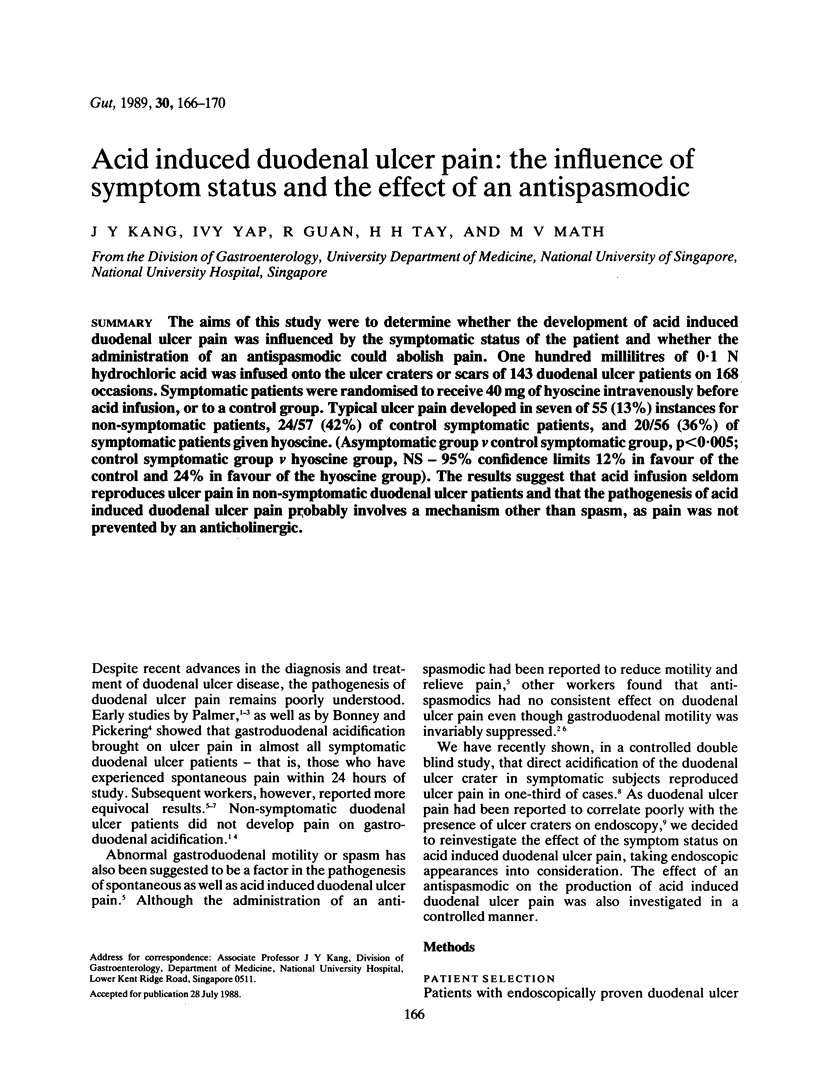
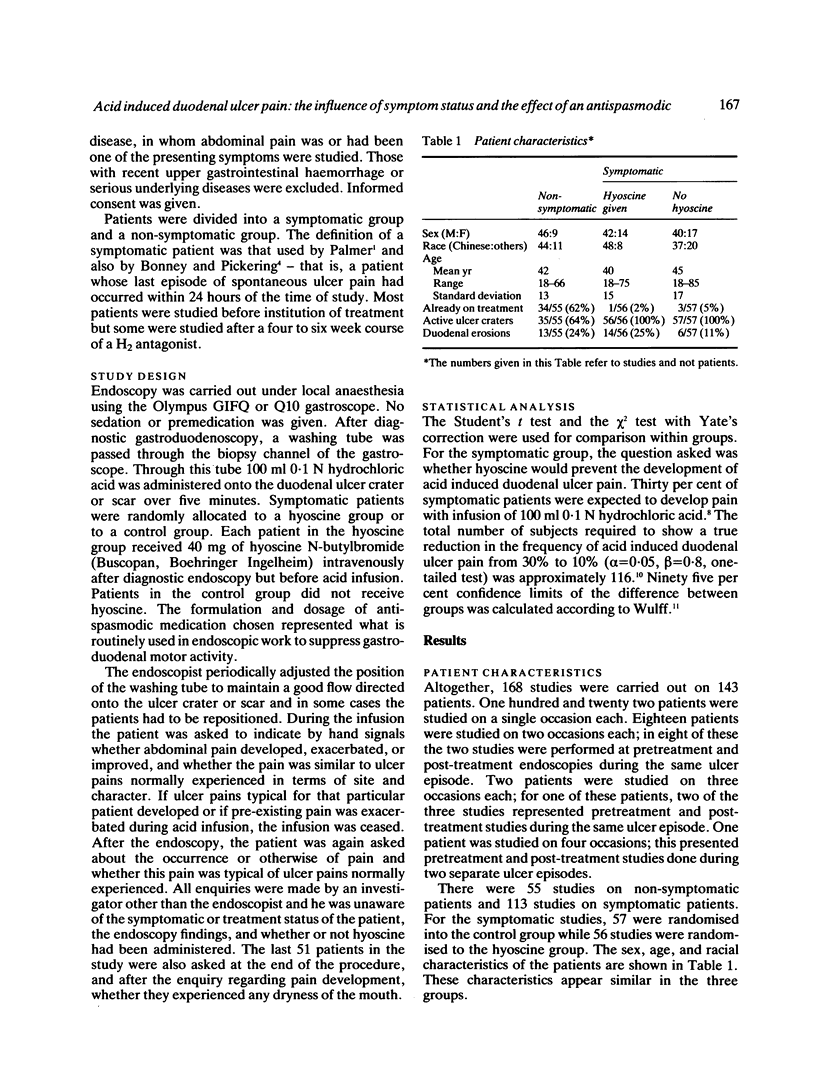
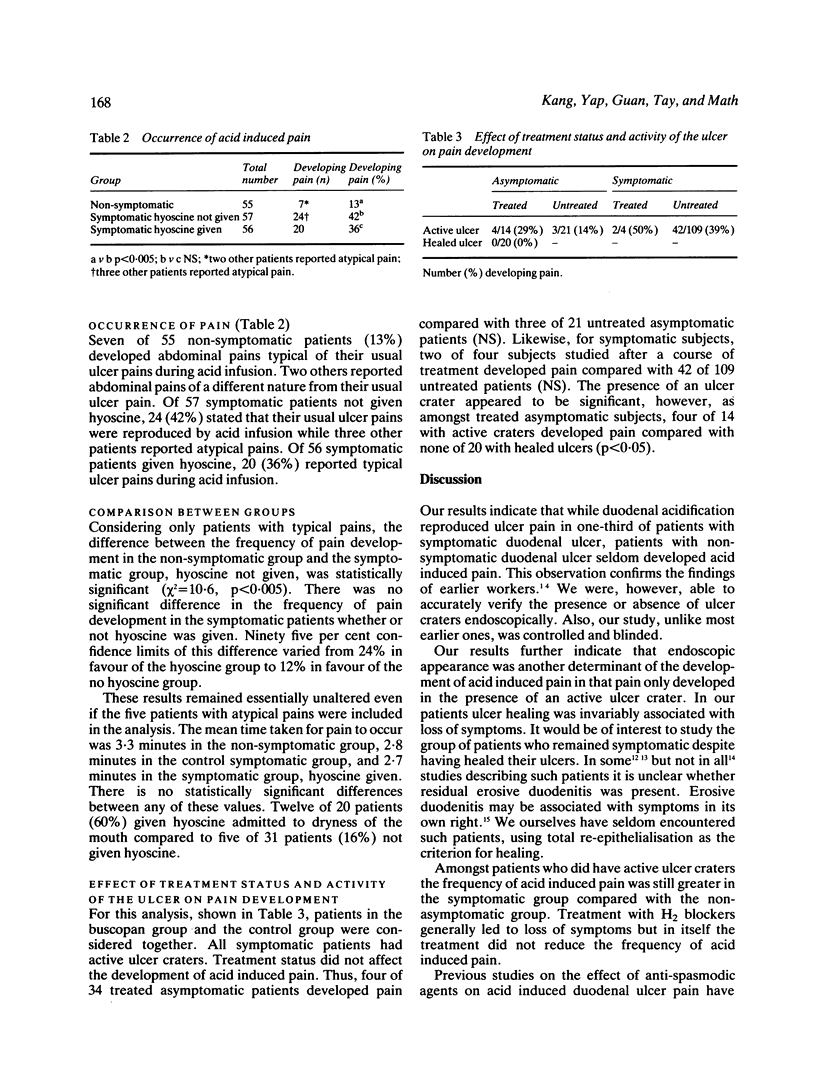
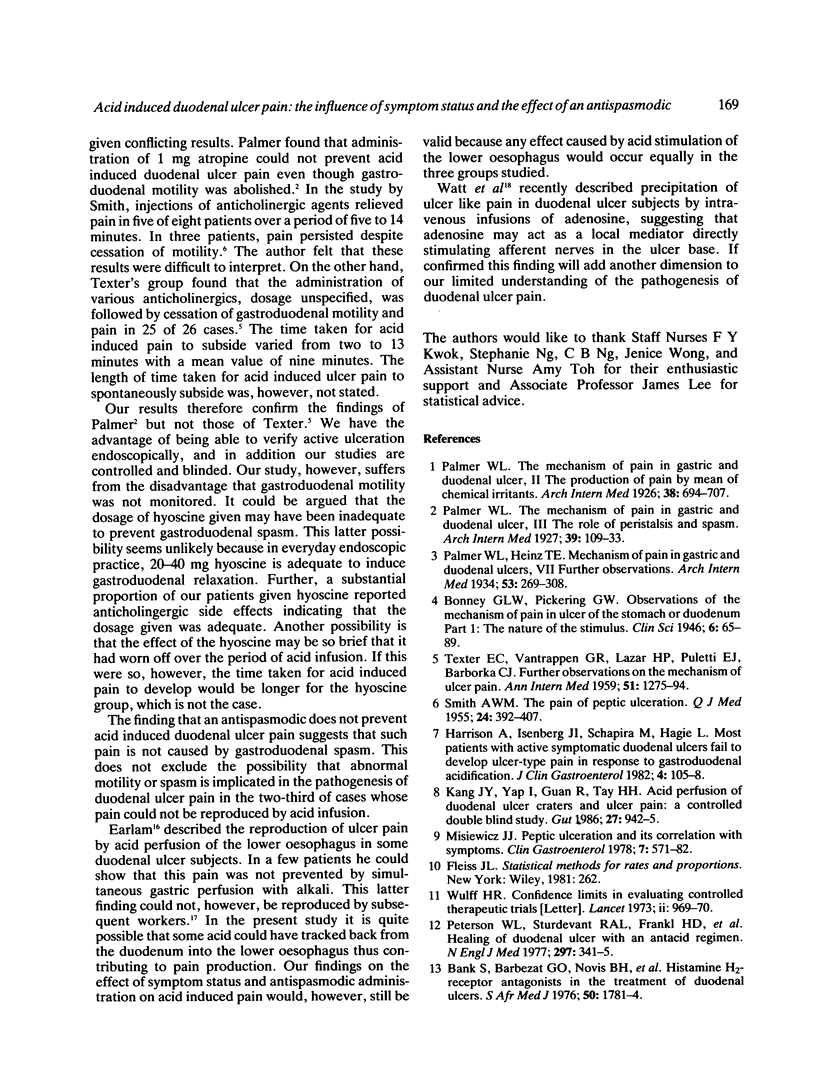
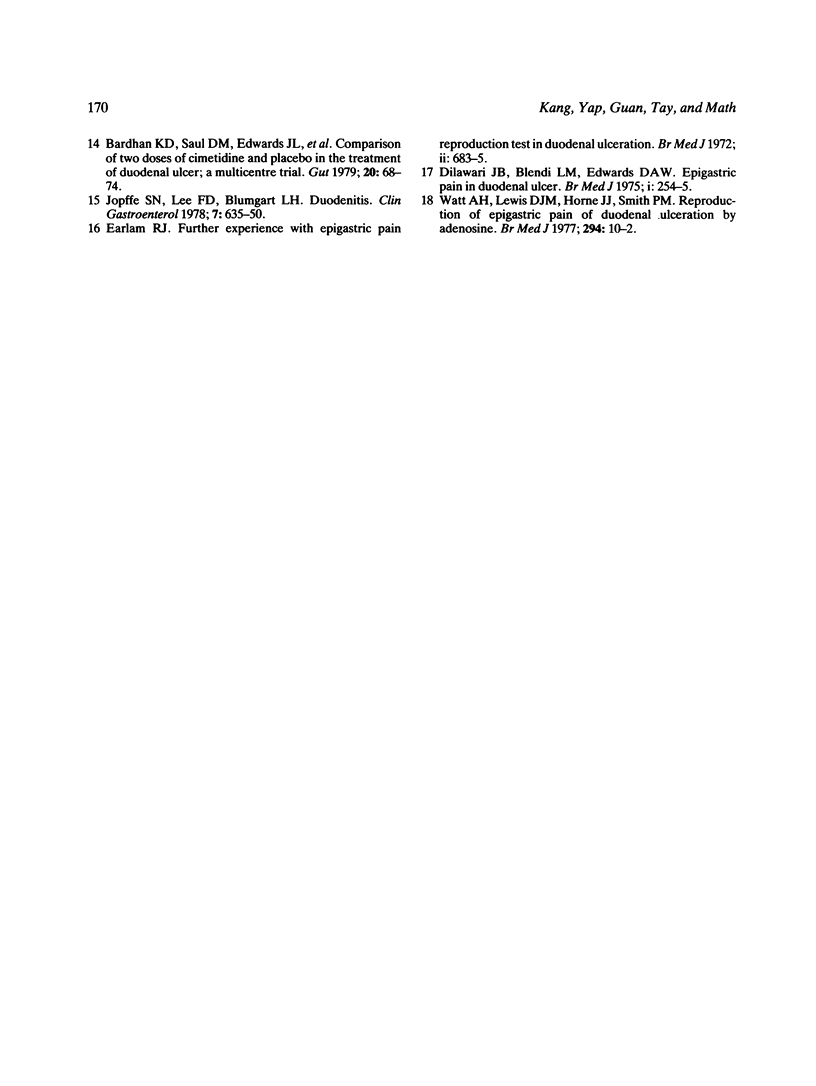
Selected References
These references are in PubMed. This may not be the complete list of references from this article.
- Bank S., Barbezat G. O., Novis B. H., Tim L. O., Odes H. S., Helman C., Narunsky L., Duys P. J., Marks I. N. Histamine H2-receptor antagonists in the treatment of duodenal ulcers. S Afr Med J. 1976 Oct 16;50(44):1781–1785. [PubMed] [Google Scholar]
- Comparison of two doses of cimetidine and placebo in the treatment of duodenal ulcer: a multicentre trial. Gut. 1979 Jan;20(1):68–74. doi: 10.1136/gut.20.1.68. [DOI] [PMC free article] [PubMed] [Google Scholar]
- Dilawari J. B., Blendis L. M., Edwards D. A. Epigastric pain in duodenal ulcer. Br Med J. 1975 May 3;2(5965):254–255. doi: 10.1136/bmj.2.5965.254. [DOI] [PMC free article] [PubMed] [Google Scholar]
- Earlam R. J. Further experience with epigastric pain reproduction test in duodenal ulceration. Br Med J. 1972 Jun 17;2(5815):683–685. doi: 10.1136/bmj.2.5815.683. [DOI] [PMC free article] [PubMed] [Google Scholar]
- Harrison A., Isenberg J. I., Schapira M., Hagie L. Most patients with active symptomatic duodenal ulcers fail to develop ulcer-type pain in response to gastroduodenal acidification. J Clin Gastroenterol. 1982 Apr;4(2):105–108. doi: 10.1097/00004836-198204000-00002. [DOI] [PubMed] [Google Scholar]
- Joffe S. N., Lee F. D., Blumgart L. H. Duodenitis. Clin Gastroenterol. 1978 Sep;7(3):635–650. [PubMed] [Google Scholar]
- Kang J. Y., Yap I., Guan R., Tay H. H. Acid perfusion of duodenal ulcer craters and ulcer pain: a controlled double blind study. Gut. 1986 Aug;27(8):942–945. doi: 10.1136/gut.27.8.942. [DOI] [PMC free article] [PubMed] [Google Scholar]
- Misiewicz J. J. Peptic ulceration and its correlation with symptoms. Clin Gastroenterol. 1978 Sep;7(3):571–582. [PubMed] [Google Scholar]
- Peterson W. L., Sturdevant R. A., Frankl H. D., Richardson C. T., Isenberg J. I., Elashoff J. D., Sones J. Q., Gross R. A., McCallum R. W., Fordtran J. S. Healing of duodenal ulcer with an antacid regimen. N Engl J Med. 1977 Aug 18;297(7):341–345. doi: 10.1056/NEJM197708182970701. [DOI] [PubMed] [Google Scholar]
- TEXTER E. C., Jr, VANTRAPPEN G. R., LAZAR H. P., PULETTI E. J., BARBORKA C. J. Further observations on the mechanism of ulcer pain. Ann Intern Med. 1959 Dec;51:1275–1294. doi: 10.7326/0003-4819-51-6-1275. [DOI] [PubMed] [Google Scholar]
- Watt A. H., Lewis D. J., Horne J. J., Smith P. M. Reproduction of epigastric pain of duodenal ulceration by adenosine. Br Med J (Clin Res Ed) 1987 Jan 3;294(6563):10–12. doi: 10.1136/bmj.294.6563.10. [DOI] [PMC free article] [PubMed] [Google Scholar]
- Wulff H. R. Letter: Confidence limits in evaluating controlled therapeutic trials. Lancet. 1973 Oct 27;2(7835):969–970. doi: 10.1016/s0140-6736(73)92631-7. [DOI] [PubMed] [Google Scholar]


